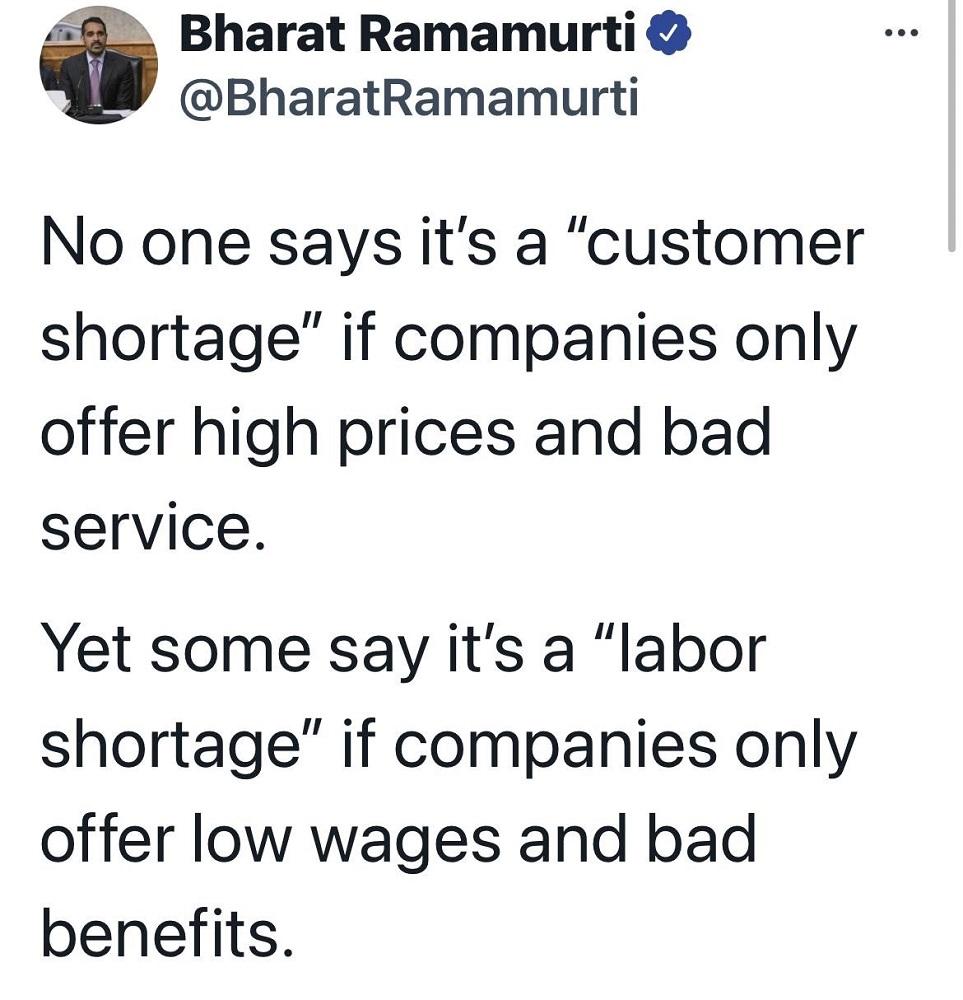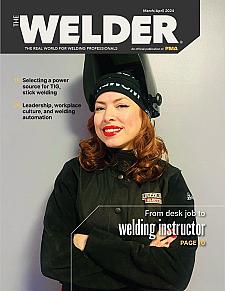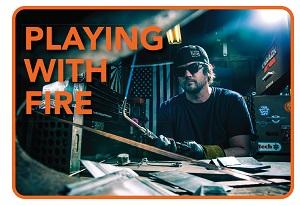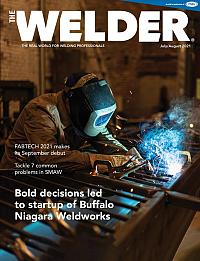Owner, Brown Dog Welding
- FMA
- The Fabricator
- FABTECH
- Canadian Metalworking
Categories
- Additive Manufacturing
- Aluminum Welding
- Arc Welding
- Assembly and Joining
- Automation and Robotics
- Bending and Forming
- Consumables
- Cutting and Weld Prep
- Electric Vehicles
- En Español
- Finishing
- Hydroforming
- Laser Cutting
- Laser Welding
- Machining
- Manufacturing Software
- Materials Handling
- Metals/Materials
- Oxyfuel Cutting
- Plasma Cutting
- Power Tools
- Punching and Other Holemaking
- Roll Forming
- Safety
- Sawing
- Shearing
- Shop Management
- Testing and Measuring
- Tube and Pipe Fabrication
- Tube and Pipe Production
- Waterjet Cutting
Industry Directory
Webcasts
Podcasts
FAB 40
Advertise
Subscribe
Account Login
Search
Playing With Fire: The skilled trades need more truth, fewer fairy tales
Manufacturing industry as a whole, and the individuals in it, would benefit from facts
- By Josh Welton
- August 8, 2021
- Article
- Arc Welding

Playing With Fire columnist and Detroit metal fabricator Josh Welton writes that the manufacturing industry as a whole, and the individuals in it, would benefit by being more honest about hard truths, especially when enticing young people to enter the skilled trades.Getty Images
Growing up I never thought about future job demand while considering my career. My mind was on things that I would enjoy doing, like designing houses or diving into human psychology. Then, during the summers between college semesters, I got my first taste of factory life, and I loved it. Had I not been dealing with some health issues and the (prescription) drugs that came with them, perhaps I still would have stayed in school and become an architect or a psychologist. But as it was, I hated going to class and liked working in a manufacturing plant.
Life is too short to be stuck in a full-time job you hate. Our education system needs to do a better job of exposing middle school, junior high, and high school kids to different paths of making a living. If all you base your decision on is how much money you can make and how many openings there might be in eight years, there’s a good chance you’ll be trapped in a career that sucks in every way outside of payday. Making money is definitely important, but so is your quality of life Monday through Friday and beyond. Studies show, however, that for most students going into the trades, potential earnings is the top concern.
This is a topic that’s near and dear to me, and as much as I’d rather not beat a dead horse, it still feels like there’s a battle for our souls in the arena of skilled trades. Every time a “pro-trade” group or organization pops up, they feel the need to blast regurgitated bullshit and out-of-context numbers to their audience, both in terms of pay and job prospects. If they have nefarious intentions, if collecting money from the industry and their lobbyists or increasing followers is their only goal, then no facts we present will matter.
But if they’re speaking from a point of ignorance, if they really do care about tradespeople and believe in the statistics because they seem positive, then maybe we can reach them. And in either case, we can continue to press forward by presenting the truth to all so the next generation of blue-collar workers can make their own decisions based on facts, not fairy tales.
The problem with these groups isn’t always obvious. You might see a new IG account that’s pimping some type of welding contest, or collaborating with an industry influencer, or sharing some cool work and think, “See, that’s wholesome; who could take issue with that?” I happen to believe that transparency matters, that motives matter. When the glossy content slides into sales pitches, an agenda beyond your well-being typically emerges.
Here are some talking points to look for when determining if a group or organization has your best interest at heart. They’re industry tropes that do not hold up to scrutiny.
“Everyone is retiring!”
No, they aren’t. The average age of a tradesperson has not suddenly increased. In fact, it’s gone down in most cases. Even if the number stayed steady, it’s not necessarily a good sign that job openings will increase by much, if at all. People are working longer. They’re retiring later because they can’t afford to do it at 65. In fact, those senior age groups are the fastest-growing demographic in the workforce.
“Look at all the money you’ll be raking in!”
Yes, you can make a nice living by working in the trades. But all things considered—and it pains me to say this—you still have much better odds of a high salary with a college degree. Now, in fairness, without scholarships or grants, college can be pricey.

Bharat Ramamurti, the current deputy director of the National Economic Council, posted this recently on Twitter.
By the same token, the highest-paying jobs in welding, for instance, also require an investment. Trade school, a welding rig, insurance, constant travel away from family, and seven-day workweeks are the norm for the men and women in the volatile energy industry where welders make the most money. If you love what you do, then it’s worth it! If you don't, the toll on your life is heavy. The median salary for a welder is about $42,000, according to the Bureau of Labor Statistics. Like it or not, those are the facts.
“3 million skilled trades jobs will be available in 2029!”
First, those making this claim are often very loose with the definition of “skilled trades.” Next, similar projections happen every year and have been happening for as long as I can remember. Google it. The solutions are always pushing trade schools to kids and asking taxpayers for subsidized training.
The one solution I never recall being proposed by anyone is a significant pay increase from employers to attract and retain talent. The same big-business owners who praise capitalism and price their goods based on the free market, and justify price increases with supply and demand and inflation, treat labor as a fixed price, no matter what. That’s why corporate profits soar while wages remain low.
Check their sources. Follow the asterisk next to the numbers. Follow the trail.
There’s a current campaign out there right now by Project MFG called “Clash of the Trades.” It seems pretty legit, looks to have some numbers that would back up the idea that going into the trades equals job security with excellent pay.
Then follow the asterisk.
Here it leads to a report put together by an entity that is funded by and exists solely to help the industry fat cats, not we the people who work for the industry fat cats. In some cases, it could be an industry-backed “nonprofit” think tank, or it might be a glorified HR firm paid to bring in an “affordable” workforce. Oftentimes, like in this instance, they reference “studies” done by other paid organizations under the same umbrella.
They use Deloitte as a source—a multinational “professional services” organization that’s hired by large companies to do a range of things, from auditing finances to consulting on strategy. Or, you know, cover up their client’s financial fraud and pen false studies to stem legislation that could hurt their client.
This organization’s stated objective is to achieve a renewed respect for tradespeople. I can get behind that! But not at the expense of truth. There is no skills gap without a pay gap first, and when the industry finally catches up with compensation, you’ll suddenly have a respected trade with the best and the brightest clamoring to join. Without it? Just more smoke and mirrors.
Why do these groups exist? To fill current and future industry positions in the cheapest way possible. They want numbers. They want more fish in the barrel because then we’re fighting each other, willing to take less, for fewer jobs instead of them fighting for us by providing higher wages and more benefits.
I love welding. I love fabricating. I love the manufacturing industry and the people who comprise it. We can promote the trades in an ethical manner, with facts. But it has to be from the ground up; it has to be from you, from me, from our contemporaries, because those above us have a much different agenda.
Stay vigilant with truth, convenient or not.
About the Author

About the Publication
subscribe now

The Welder, formerly known as Practical Welding Today, is a showcase of the real people who make the products we use and work with every day. This magazine has served the welding community in North America well for more than 20 years.
start your free subscription- Stay connected from anywhere

Easily access valuable industry resources now with full access to the digital edition of The Fabricator.

Easily access valuable industry resources now with full access to the digital edition of The Welder.

Easily access valuable industry resources now with full access to the digital edition of The Tube and Pipe Journal.
- Podcasting
- Podcast:
- The Fabricator Podcast
- Published:
- 04/16/2024
- Running Time:
- 63:29
In this episode of The Fabricator Podcast, Caleb Chamberlain, co-founder and CEO of OSH Cut, discusses his company’s...
- Trending Articles
Sheffield Forgemasters makes global leap in welding technology

Welding student from Utah to represent the U.S. at WorldSkills 2024

Lincoln Electric announces executive appointments

Lincoln Electric acquires RedViking

Engine-driven welding machines include integrated air compressors

- Industry Events
16th Annual Safety Conference
- April 30 - May 1, 2024
- Elgin,
Pipe and Tube Conference
- May 21 - 22, 2024
- Omaha, NE
World-Class Roll Forming Workshop
- June 5 - 6, 2024
- Louisville, KY
Advanced Laser Application Workshop
- June 25 - 27, 2024
- Novi, MI



























